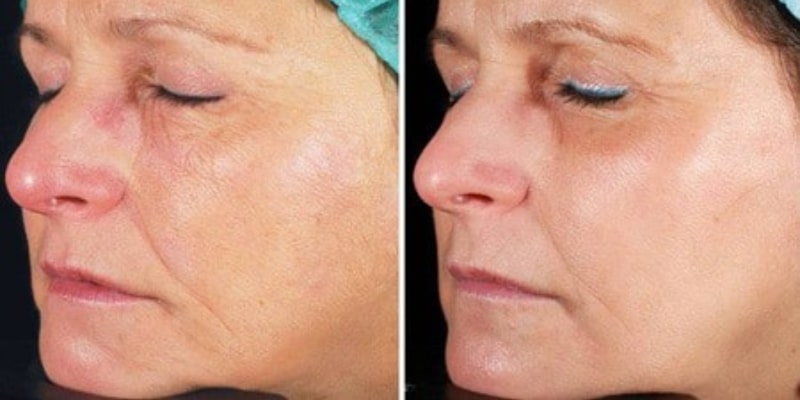Making the decision to enter a drug & alcohol rehab program is one of the bravest and most transformative choices you can make. The first week in rehab often brings a mix of emotions—relief, fear, hope, and uncertainty. It’s a period of adjustment as you step into a structured, supportive environment designed to help you heal physically, emotionally, and mentally. Knowing what to expect can make this experience less intimidating and help you embrace the process with confidence.
Day 1: The Intake and Assessment Process
Your first day in rehab begins with an intake process. This is when you’ll meet the clinical and administrative staff who will guide your treatment journey. Expect to complete a variety of forms and assessments covering your medical history, substance use, mental health background, and personal goals.
A nurse or doctor will perform a medical evaluation to ensure you’re physically stable and to determine if you need detoxification before entering the main treatment program. You’ll also meet with therapists or case managers who will create a personalized treatment plan based on your unique needs.
This initial process might feel overwhelming, but remember—everything you share is confidential and used solely to provide you with the best possible care. By the end of the day, you’ll likely have a clear schedule outlining therapy sessions, group meetings, meals, and recreational activities for the week.
Detox and Withdrawal Management
For many individuals, the first few days in rehab involve detoxification—the process of clearing drugs or alcohol from your body. This stage is medically supervised to ensure your safety and comfort.
Withdrawal symptoms vary depending on the substance used, duration of use, and overall health. You might experience symptoms such as nausea, sweating, anxiety, or trouble sleeping. The medical staff is trained to manage these symptoms and can administer medications to ease discomfort when necessary.
While detox can be physically and emotionally challenging, it’s also the first major step toward recovery. By the end of this phase, most people report feeling clearer, lighter, and more in control than they have in months—or even years.
Meeting Your Support Team and Peers
After settling in, you’ll start meeting the core members of your treatment team. This often includes a counselor, therapist, medical professional, and a case manager. These individuals will be your guides throughout the recovery process, helping you set achievable goals and stay accountable.
You’ll also begin to meet your peers—other individuals on their own recovery journeys. Many people entering rehab worry about fitting in or being judged, but these fears usually fade quickly. In fact, group therapy sessions and shared experiences often form the foundation of long-lasting friendships built on mutual understanding and support.
Establishing a Routine
Structure is a key part of rehab. During your first week, you’ll adjust to a daily schedule that includes therapy, group discussions, recreational activities, and personal reflection time.
A typical day might start with breakfast and a morning meditation session, followed by individual therapy or educational classes about addiction and coping skills. Afternoons often include group therapy, holistic treatments such as yoga or art therapy, and free time for journaling or exercise. Evenings usually feature a support meeting or group reflection session before lights out.
This routine might feel restrictive at first, especially if you’re used to an unstructured lifestyle, but it’s designed to promote stability and focus. Over time, many residents find comfort in the predictability and rhythm of their days.
Introduction to Therapy and Counseling
Therapy is at the heart of recovery. During your first week, you’ll attend both individual and group therapy sessions that help uncover the emotional and psychological roots of addiction.
Individual therapy allows you to work one-on-one with a counselor to explore personal challenges, trauma, or underlying mental health issues. Group therapy, on the other hand, provides a sense of belonging and allows you to learn from the experiences of others.
You may also be introduced to evidence-based therapies such as:
- Cognitive Behavioral Therapy (CBT): Helps identify and change destructive thought patterns.
- Dialectical Behavior Therapy (DBT): Focuses on mindfulness and emotional regulation.
- Motivational Interviewing: Encourages positive decision-making and commitment to recovery.
Rehab isn’t just about removing substances—it’s about understanding the “why” behind your addiction and developing the tools to create a new, healthier life.
Focusing on Physical and Mental Wellness
Most rehab programs emphasize holistic healing, combining traditional therapy with physical wellness activities. During your first week, you might participate in yoga, fitness classes, or mindfulness exercises designed to strengthen both body and mind.
Proper nutrition also plays a big role in recovery. Balanced meals are provided to help restore your physical health, improve energy levels, and stabilize mood. Many people are surprised at how much better they feel after just a few days of healthy eating, regular sleep, and physical movement.
Building Emotional Awareness
The first week in rehab often brings up a wave of emotions. It’s common to experience guilt, sadness, anxiety, or even anger. These feelings are a normal part of healing and are addressed in therapy sessions and group discussions.
Counselors will teach you techniques to manage emotional triggers and stress in healthy ways. You’ll also begin to develop mindfulness and grounding skills to stay present during difficult moments. This emotional awareness becomes one of the most valuable tools you’ll carry into long-term recovery.
A Focus on Teens: Early Intervention and Specialized Care
For adolescents entering Teen Mental Health & Addiction Treatment programs, the first week can feel especially challenging. Teens often struggle with fear of judgment, separation from friends, or uncertainty about what lies ahead.
Rehab centers that specialize in teen care create age-appropriate environments where young people can connect with peers who share similar experiences. Treatment often includes family therapy, educational support, and recreational activities that promote teamwork and trust.
Therapists also address underlying issues such as anxiety, depression, trauma, or peer pressure—factors that often contribute to substance use at a young age. Early intervention not only helps teens break free from addiction but also equips them with coping skills and emotional resilience for a healthier future.
The Power of Community
Recovery is not a solo journey. One of the most powerful aspects of rehab is the sense of community that develops among residents and staff. Sharing experiences with others who understand what you’re going through helps break down shame and isolation.
During your first week, you’ll likely attend support meetings where people openly discuss their challenges and victories. These sessions remind you that you’re not alone and that change is possible. Many individuals describe these early bonds as life-changing sources of strength.
Setting Goals for the Future
As your first week concludes, you’ll begin setting short- and long-term goals for your recovery journey. These might include staying sober for a certain period, rebuilding relationships, or pursuing education or career aspirations.
Your treatment team will help you identify achievable milestones and develop an aftercare plan. This plan may involve ongoing therapy, sober living arrangements, or participation in support groups like AA or NA. Having a roadmap gives you direction and motivation as you continue moving forward.
Final Thoughts
Your first week in rehab is the beginning of a new chapter—one built on hope, healing, and self-discovery. While it can feel overwhelming at times, remember that every person around you—from staff to fellow residents—is there to help you succeed.
Recovery doesn’t happen overnight, but the first week lays the foundation for lasting change. By committing to the process, trusting your care team, and believing in your ability to heal, you’re taking the most important step toward a healthier, more fulfilling life.





